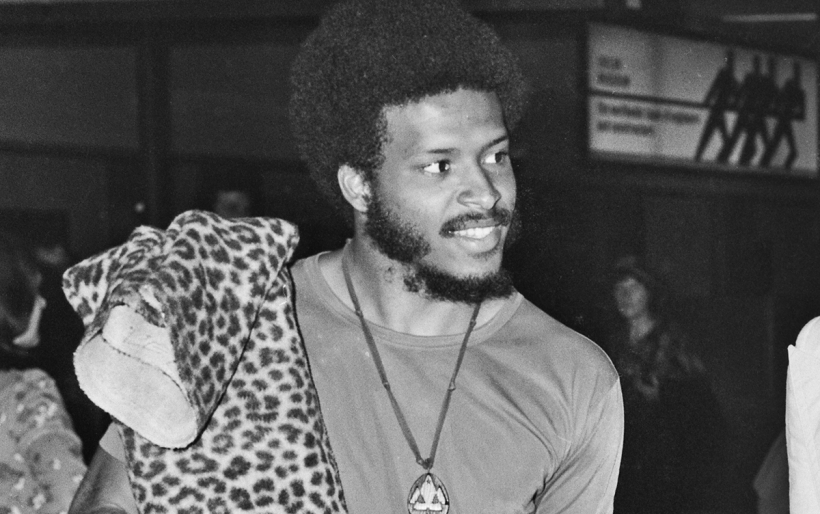
James Mtume in 1973 | photo by R. Brigden / Express / Hulton Archive / Getty Images
Remembering James Mtume: Performer, composer, and holistic champion of Black music
I’ve never met the late James Mtume and I recently missed an opportunity to interview him about his life and work. About seven months ago, a publication that I work with approached me about interviewing the multi-instrumentalist, percussionist, and composer as part of a celebration of the 35th anniversary of his score for Jerrold Freeman’s 1986 film adaptation of Richard Wright’s classic novel, Native Son. With elegant blues pieces like “Take That Job” and the grandiose, synth-driven epic “Beyond Forever” (a tune sampled by DMX for the intro to It’s Dark and Hell is Hot), Native Sonis an apt reflection of Mtume himself: a man whose aesthetic and intellectual reach embraced the whole of Black music on its own terms.
When presented with the chance to interview Mtume, the ideas for where our conversation could go were doing the percolator in my mind. Of course, I wanted to start by talking with him about his upbringing in South Philly and ask him questions about his father, the legendary jazz saxophonist Jimmy Heath. I also wanted to discuss his melding of jazz with cultural Pan-Africanism on the 1972 album Alekebulan: Land of the Blacks, playing in Miles Davis’ electric juggernaut of a band in the 70s or his time working with guitarist Reggie Lucas (another alumni from Miles’ fusion band) writing and producing countless R&B hits for Phyllis Hyman, Stephanie Mills, Donny Hathway and Mary J. Blige. I was excited because I knew that by following Mtume’s own story, we could trace a history of Black diasporic music from Africa to shores of the Americas, out through the blues, jazz, funk, soul, rock and hip-hop.
Ultimately, the interview didn’t happen due to scheduling, and the outpouring of love and appreciation on social media in the wake of Mr. Mtume’s passing this week has been wonderful to see, with his words and works reinforcing his place in this great continuum of Black music. A key element of James Mtume’s life story was his own musical curiosity and ability to adapt to the new directions in which the music was going. Although Mtume’s songs would go on to provide the skeleton for some of rap music’s biggest hits, Mtume himself had made some controversial statements about rap and sampling early on. After making some dismissive remarks about sampling on Bob Slade’s Kiss FM show “Open Line” in the late 80s, Brooklyn rap legends Stetsasonic took aim at Mtume with 1988’s “Talkin’ All That Jazz”, a now-classic cut in which the group flipped the bassline from Lonnie Liston Smith’s jazz-funk epic “Expansions”, dissing Mtume and asserting rap and sampling’s validity as an artform.
In the years following this dust-up, Mtume seemed to openly embrace hip-hop, even speaking positively with his relationship with the new music on The Breakfast Club, and offering clarity on the conflict and framing it in a way that prioritized the wholeness of Black music and culture across generations: “I’m not against sampling. If you going to sample my music, pay me. Back then, there was a big split with music and there was a breakdown between the cultural continuity between older Blacks and younger Blacks. The music was the vehicle that really expressed that division.” While Mtume is probably most famously known for the 1983 hit “Juicy Fruit” (performed by his band Mtume and famously sampled for Biggie’s 1994 hit “Juicy”), his contributions to our music and culture extend far beyond those two songs. With his voracious intellect and ability to traverse wide swaths of the Black musical tradition, James Mtume was one of our finest champions and a model for how elder musicians and thinkers can embrace the future with warmth and thoughtful critique.
James Mtume also composed the music for New York Undercover, which is objectively the best TV theme song in history. R.I.P. our brother Mtume
